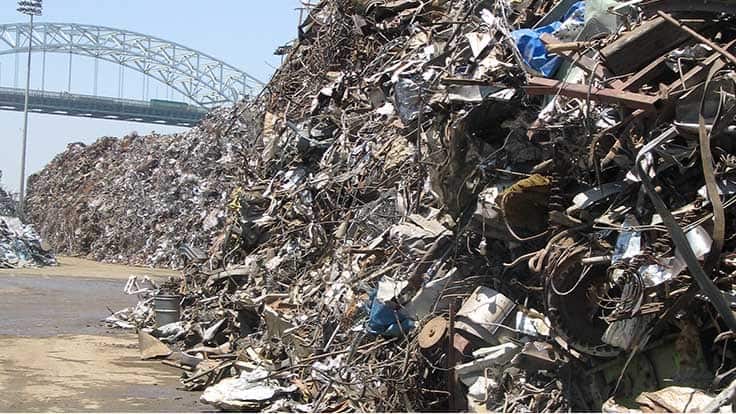In today’s fast-paced world, the need for sustainable practices has become increasingly important. One crucial aspect of sustainability is the recycling of materials, especially metals. Metal scrap yards play a vital role in this process, enabling the effective and responsible management of metal waste. This article explores the significance of metal scrap yards, their services, benefits, safety considerations, and the future prospects of this industry.
What is a Metal Scrap Yard?
A metal scrap yard, also known as a scrap metal recycling facility, is a specialized establishment where various types of metal waste are collected, processed, and recycled. These yards serve as a central hub for individuals, businesses, and industries to dispose of their metal waste in an environmentally friendly manner.
The Importance of Metal Scrap Yards
Metal scrap yards play a crucial role in preserving the environment and conserving natural resources. By recycling metals, these yards reduce the need for new metal production, which requires substantial energy and contributes to greenhouse gas emissions. Moreover, recycling metals reduces the strain on mining activities, thereby minimizing their environmental impact.
Types of Metal Scrap Yards
Metal scrap yards can be categorized into different types based on their operations and target customers. Some scrap yards specialize in collecting specific types of metals, such as ferrous (iron-based) or non-ferrous metals (e.g., aluminum, copper, brass). Others may focus on specific industries, like automotive or construction, catering to their unique metal recycling needs.
Services Offered by Metal Scrap Yards
Metal scrap yards offer a range of services to facilitate the recycling process. They provide drop-off points or pickup services for individuals and businesses to dispose of their metal waste conveniently. These yards employ various techniques to sort, separate, and process the collected metals, ensuring efficient recycling. Additionally, some metal scrap yards offer competitive prices for the scrap metal they purchase, providing an economic incentive for recycling.
Recycling Process
Once the metal waste is collected at a scrap yard, it undergoes a systematic recycling process. The first step involves sorting the different types of metals to separate ferrous and non-ferrous materials. Next, the metals are processed to remove any contaminants, such as paint or coatings. This is followed by shredding or crushing the metals into smaller pieces, making them easier to transport and process further. Finally, the metals are melted down and refined to produce new metal products or raw materials for manufacturing industries.
Environmental Benefits
Metal scrap yards contribute significantly to environmental preservation. By recycling metals, these yards reduce the need for mining and extraction, conserving valuable natural resources. The recycling process also requires less energy compared to the production of new metals, leading to reduced carbon emissions and a smaller ecological footprint. Furthermore, recycling metals helps minimize landfill usage, as metal waste can be repurposed instead of being discarded.
Economic Benefits
Metal scrap yards offer several economic advantages. Recycling metals reduces the cost of manufacturing new products, as recycled metals are often cheaper than newly extracted metals. Additionally, the metal recycling industry provides employment opportunities and supports local economies. By incentivizing the recycling of metal waste, scrap yards contribute to a more sustainable and circular economy.
Safety Considerations
While metal scrap yards play a crucial role in recycling, safety considerations are of paramount importance. These facilities must adhere to strict safety regulations to protect workers and prevent accidents. Proper training, the use of protective equipment, and safe handling practices are essential in metal scrap yards. Additionally, measures should be in place to manage potential environmental risks associated with the recycling process.
How to Choose a Reliable Metal Scrap Yard
When selecting a metal scrap yard, it is essential to consider certain factors to ensure a reliable and satisfactory experience. Look for yards that have the necessary licenses and certifications, indicating compliance with industry standards. Check their reputation, reviews, and customer testimonials to gauge their reliability and customer service. Furthermore, consider their pricing, the range of services offered, and their commitment to sustainability.
The Future of Metal Scrap Yards
The future of metal scrap yards looks promising as society continues to embrace sustainability and environmental consciousness. With advancements in technology, these yards are likely to adopt more efficient recycling processes and innovative techniques for metal recovery. The integration of artificial intelligence and automation may enhance sorting and processing capabilities, further streamlining operations and increasing recycling rates.
Conclusion
Metal scrap yards are pivotal in driving the recycling revolution, enabling the sustainable management of metal waste. By recycling metals, these yards contribute to environmental preservation, conserve natural resources, and support economic growth. Choosing a reliable metal scrap yard ensures responsible disposal of metal waste and contributes to a greener future. Embracing recycling practices and utilizing the services of metal scrap yards is a vital step towards building a more sustainable and circular economy.





